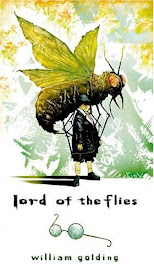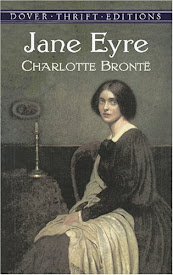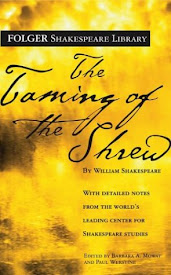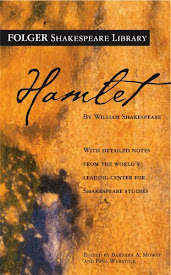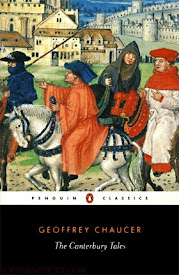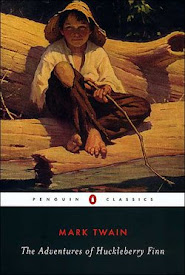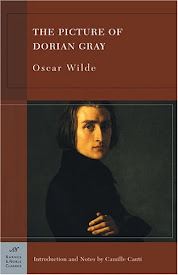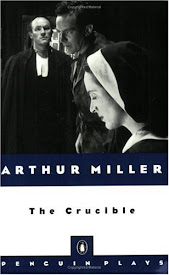AP English – Mr. George
Apr. / 16/ 2009
Pride and Prejudice Essay
Pride and Prejudice
_It is a truth not universally acknowledged, that a well-written book, which has just been completed, must be in want of a suitable title. It is utterly true that “a good title is the title of a successful book” (Gallagher); however, people usually prefer to concentrate more on the dramatic plot of a novel, rather than its simplistic title. Little do they know that an effective title can give readers a general sense of what they are about to read; in other words, it is a significant crystallization of the entire story. The title of Jane Austen’s world-famous novel, Pride and Prejudice, is a great example of how a profound title could carry the main theme of a story throughout a book. Using only three words, Austen was able to distil the main components out from her complex novel and use it as a guide for readers to follow along while reading._It is a love story after all; thus, love is the protagonists’ final destination. The book title is a sign post Austen purposely placed in the start, pointing at indistinguishable directions – until the end, no one knows if the pride sign or the prejudice sign can lead Darcy and Elizabeth to the final destination of love, or the opposite direction, which will separate them forever.
Curious and somehow confused, the readers entered the book with two words hanging above the top of their heads – Pride and Prejudice. However, as the readers proceed through the book, the significance of the title becomes obvious: Darcy, the male protagonist of the novel, is extremely proud; while Elizabeth, the heroine of the novel, is excessively prejudice.
_Pride was defined early in the novel: “Human nature is particularly prone to it, and that there are very few of us who do not cherish a feeling of self-complacency on the score of some quality or other, real or imaginary” (Austen 21). This shows that pride itself is harmless, but when it is mixed up with vanity, it becomes vicious. Darcy entered the novel as proud as he could be; but fortunately, there was no vanity in it. He was so indifferent about others that he looked down on every inhabitant in Netherfield and disdained to dance, or even talk, to them. His haughty manners at the ball gave people a very bad impression of his personality, especially Elizabeth, whom he considered as “tolerable; but not handsome enough to tempt me” (13). This unpleasant first encounter of Darcy and Elizabeth foreshadowed the subsequent conflict between the two protagonists.
_Darcy introduced the word “pride”, which is the first word of the book's title, into the novel; while Elizabeth, with her decision to trust Mr. Wickham's one-sided story, introduced the other word of the book’s title – “prejudice”. Her prejudice toward Darcy mostly came from her initial negative impression of him at the ball. Later when Wickham attacked Darcy’s character brutally, her prejudice toward Darcy increased, even though Wickham was not trustworthy at all: “I could wish, Miss Bennet, that you were not to sketch my character at the present moment, as there is reason to fear that the performance would reflect no credit on either” (94). Lizzy’s initial prejudice gradually turned into a strong antipathy, which made her move further apart from Darcy.
_Both characters were unaware of their weakness. Darcy’s blindness toward his own pride and Lizzy’s ignorance of her prejudice made the love story even harder to continue. Darcy’s wealth and high social status misled him to think that he has the right to be proud. He was totally unaware of the negative opinions of himself, which were mostly caused by his haughtiness. As for Elizabeth, she asked Darcy if he “never allow[ed] yourself to be blinded by prejudice” (94) without realizing that she is actually the one who is blinded by prejudice. The mist of prejudice spoiled her judgment; therefore, she cannot see any good in Mr. Darcy, who gave her a negative impression when they first met. When Charlotte tried to show Elizabeth the agreeable side of Mr. Darcy, Lizzy cried out in an disdainful manner: “To find a man agreeable whom one is determined to hate! Do not wish me such an evil” (91). Her mind could not be easily changed because of her strong prejudice.
_The word “and” was placed in the middle of the title Pride and Prejudice; thus, there must be a correlation between the two words, Pride and Prejudice.
_First of all, Pride and Prejudice are the overlapping of the two protagonists – both of them have pride and prejudice, although those characteristics are shown in slightly different ways. Mr. Darcy has his pride on the outside, while prejudice is the inner domination of his views to other people. He refused to interact with people other than his closest friends because he is supercilious - but that is just partly right - he is, indeed, so encumbered by his prejudice that he cannot see the goodness in others. On the other hand, Elizabeth is using her prejudice to cover up her pride: “Compliments always take you by surprise, and me never” (16). She is not surprised by others' compliments because she knows her good qualities already. She becomes extremely critical when meeting people from a higher social class, for example, Mr. Darcy, because her pride was violated by the air of aristocracy.
_As the story continued, Darcy’s pride and Lizzy’s prejudice exchanged their initial owners. Although Darcy’s haughtiness was humbled by love, his prejudice towards Lizzy’s family was substantially excessive because of his few superficial observations of the Bennets. Lizzy, on the other hand, turned to be excessively proud of her own judgment of her family. She continued to keep Darcy away because she thought he disdained her family, even though she has read the letter Darcy wrote to explain every possible misunderstanding. Till this point, the conflict of pride and prejudice has been raised into a higher level, which would be solved later in the text when the two protagonists realize their flaws and try to overcome them.
_Secondly, Pride and Prejudice are the common obstacles that the two protagonists have to overcome. Darcy and Elizabeth’s love relationship is beneficial to both of them:
It was a union that must have been to the advantage of both: by her ease and liveliness, his mind might have been softened, his manners improved; and from his judgment, information, and knowledge of the world, she must have received benefit of greater importance (302).
Both of them start as people who have some missing pieces of a perfect character – Darcy has pride and Elizabeth has prejudice. When the two protagonists encountered their imperfections, they seemed to pull the two away from each other because they could only see the flaws in the other person. However, as they gradually found out that pride and prejudice are actually intertwined with each other, they understood that love is the only way to untie the knot of pride and prejudice.
_The two protagonists introspection and love relationship were expressed perfectly by Darcy to Lizzy in the end:
You taught me a lesson hard indeed at first, but most advantageous. By you, I was properly humbled. I came to you without a doubt of my reception. You showed me how insufficient were all my pretensions to please a woman worthy of being pleased (357).
Like holding a mirror, which can reflect one's faults, Darcy and Lizzy are mirrors for each other. They forced themselves to throw away their deep-rooted pride and prejudice, although it may be painful sometimes. It was the power of love, which promoted the changes in Darcy and Elizabeth: “for herself she was humbled; but she was proud of him, - proud that in a cause of compassion and honor he had been able to get the better of himself” (316). During the course of their self-realization, they also realized that the perfect piece to make them whole is a piece of each other's heart.
_The two protagonists were tangling with pride and prejudice throughout the novel. They also struggled to put down their pride and get rid of their prejudice in front of the irresistible love that is slowly but surely growing between them. Luckily, “a person may be proud without being vain” (21); there is no vanity in their pride and there is no hatred in their prejudice. So the time when they realize how much they share in their personalities, and how much they have been through, is also the time when prejudice dissolves, pride humbles, and love completes.
_When the story ended and the book was closed, the readers’ mind would be needled with two words – Pride and Prejudice. These two words, probably the most important and significant words of the novel, are the characteristics of the protagonists, catalysts for their conflict, motivation for their self-realization, and what eventually leads them to the happiness we root for. The readers “never really know the title of a book until it’s finished” (Wesley). Not until the last moment is the title revealed as the original cause and the ultimate outcome of the entire plot. Just as Darcy and Elizabeth completed each other, the significant and suitable title, Pride and Prejudice, completed this extraordinary book and embroidered its cover, which let this novel shine timelessly.
Works Cited
Jane Austen. Pride and Prejudice. New York: Barnes & Noble Classics, 2003.
BrainyMedia.com. 15 April 2009. Title Quotes. 21 December 2001


